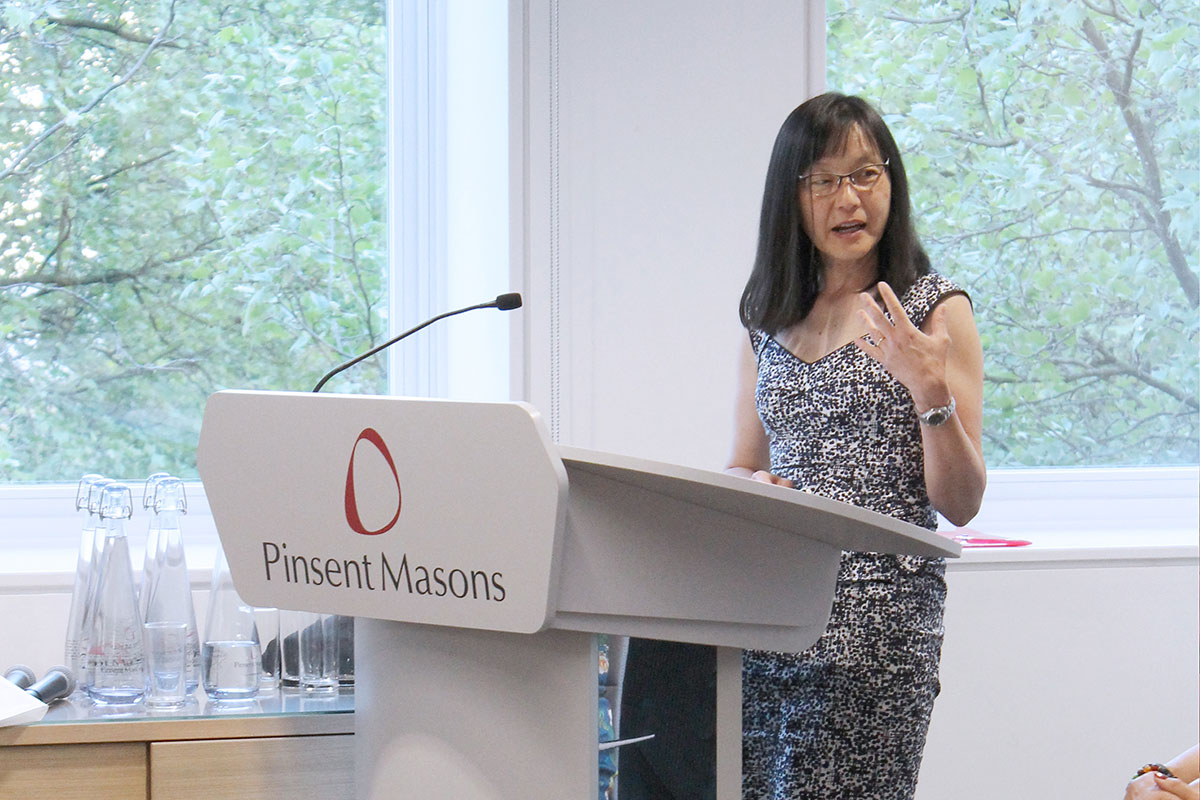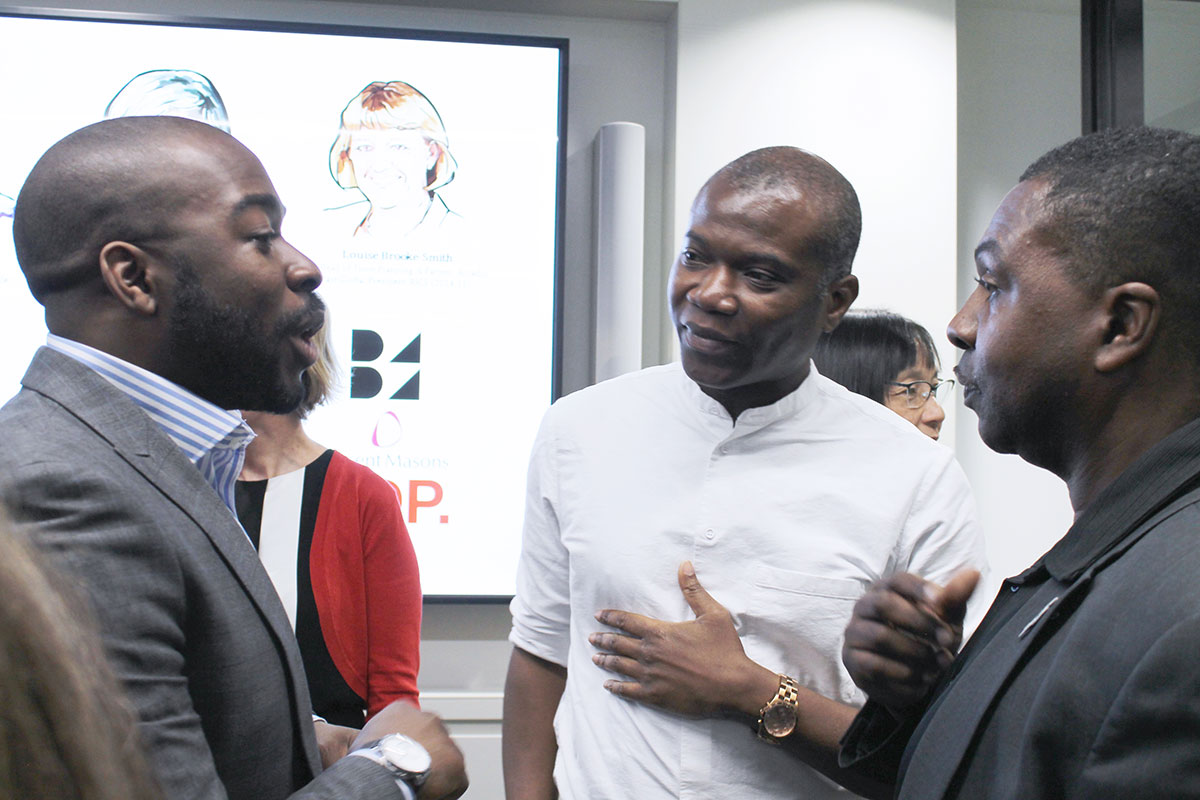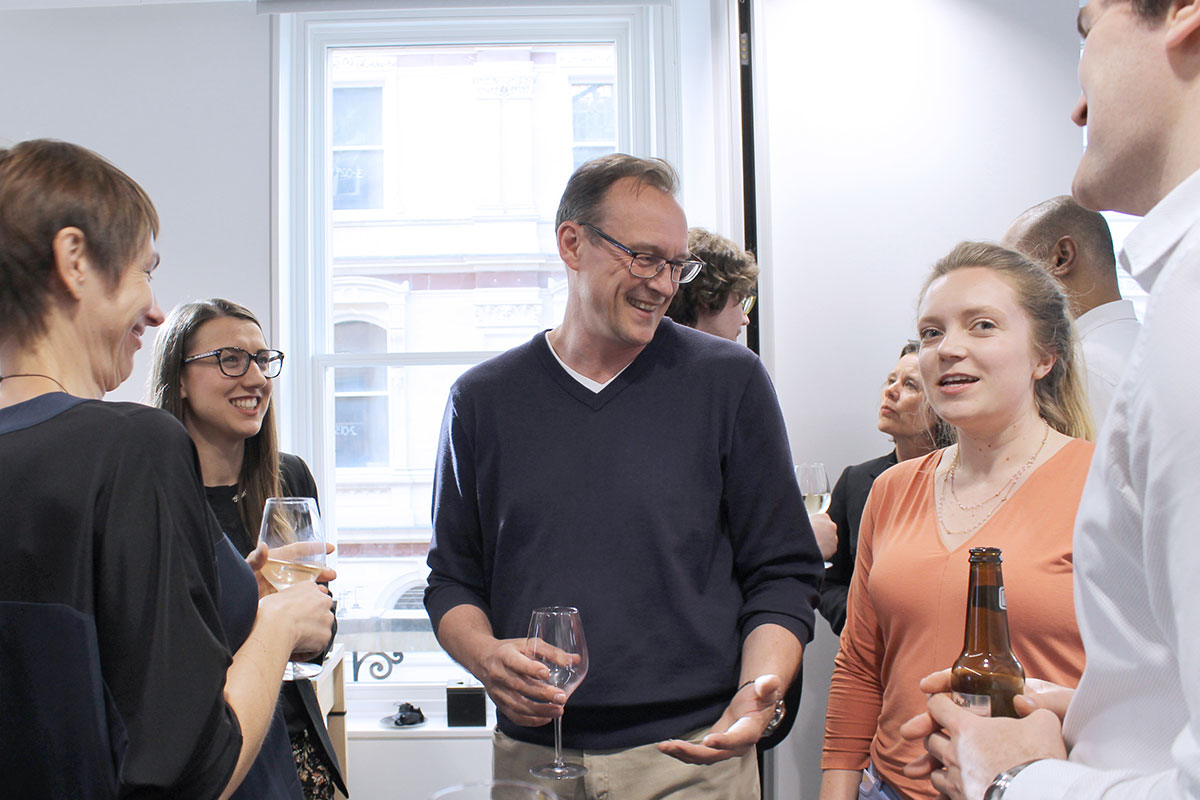#{Title}
#{Copy}
BDP hosted Diversity in the Built Environment on 14 May, which was organised by Birmingham studio architect Kieren Majhail. The event in association with the Birmingham Architectural Association, Pinsent Masons and Women in Property brought together high profile leaders from across the built environment to share expertise and professional practices promoting diversity and inclusivity in the workplace. It was attended by over 80 people and took place at Pinsent Masons’ offices in the award-winning 55 Colmore Row development. The discussion centered on the roles of gender and race in the construction industry. The speakers showed their strong support for flexible working practices, mentoring schemes and leadership role models as practical tools to promote a diverse work cohort. Strong consensus was reached that there is still a lot of work to be done for the boardrooms and high level leadership positions to be representative of the population for which they design and build.
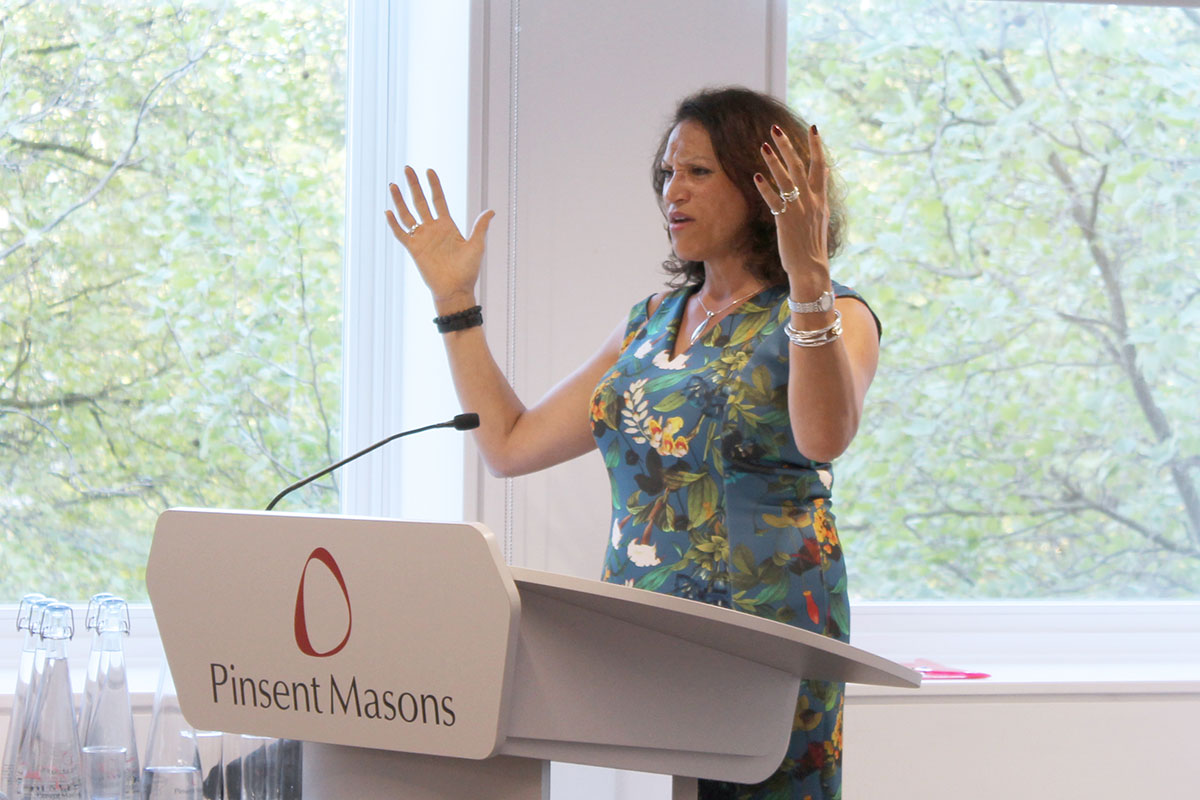
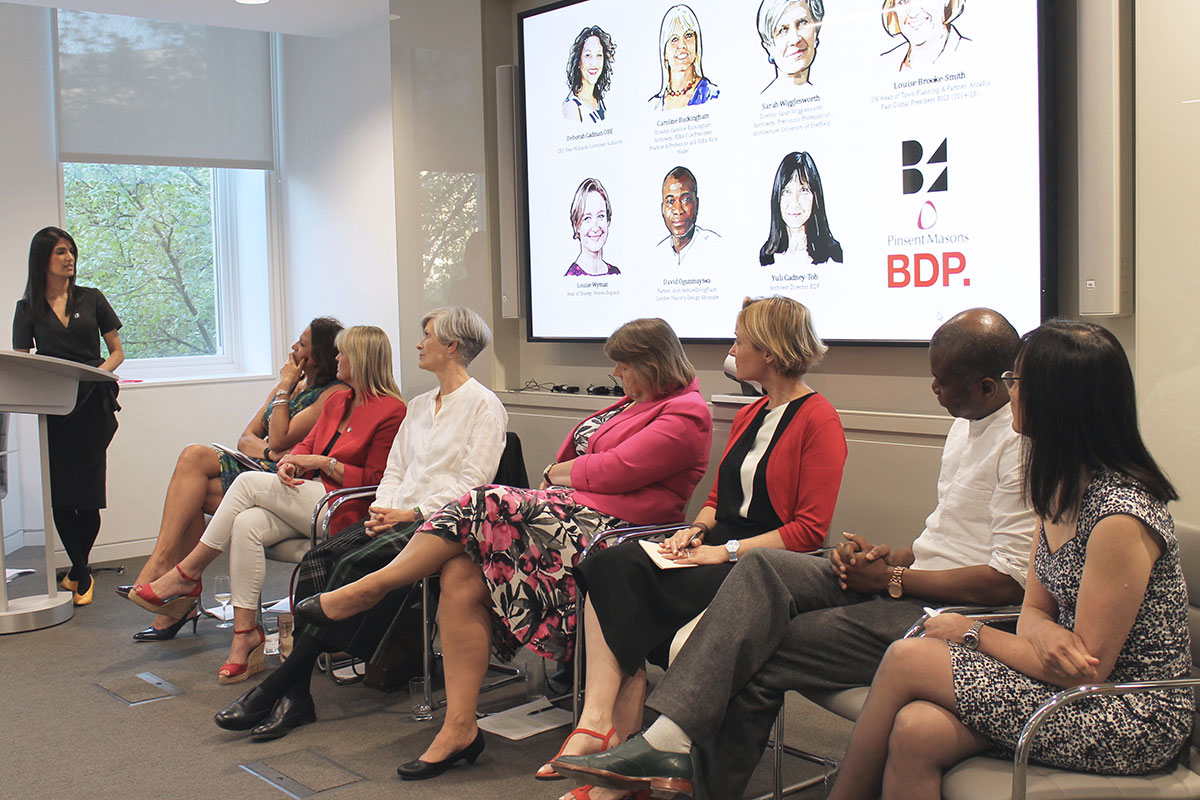
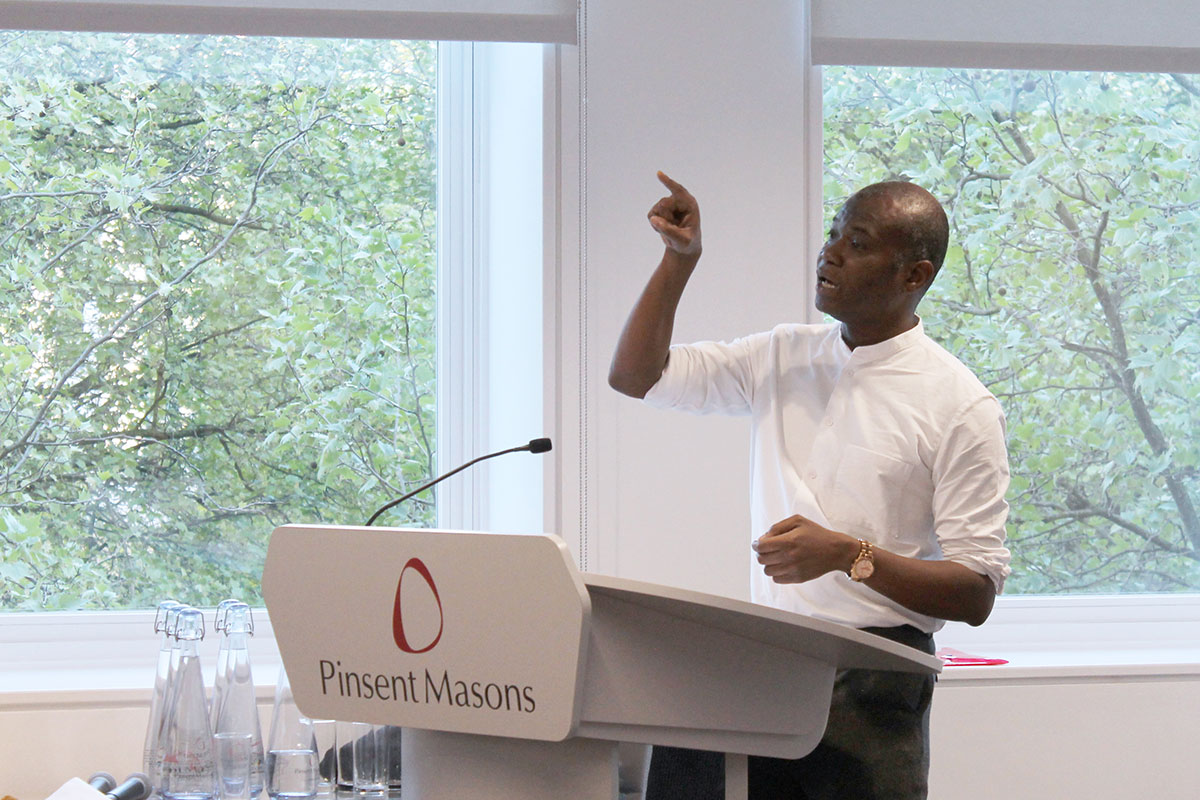
Main points highlighted:
Deborah Cadman OBE, CEO of West Midlands Combined Authority (WMCA), stressed that there is a need to encourage young people to stay where they have grown up and to communicate with employers that they should look for local talent. She is a strong advocate for fixing the gender pay gap and WMCA are targeting requirements to have diverse panels and ensure diversity principles are enshrined in contracts they give out.
Caroline Buckingham of Caroline Buckingham Architects, RIBA vice president practice profession and RIBA role model, highlighted the need for practices to provide freedom of choice for their employees and freedom of expression. All employees need to be able to be themselves at the workplace. Flexible working is vital in achieving this and retaining staff.
Sarah Wigglesworth of Sarah Wigglesworth Architects, and previously professor of architecture at the University of Sheffield, discussed the importance of having an understanding of an employee’s emotional state and needs, having flexible working, sabbaticals and eliminating overtime to encourage a diverse workforce. She also raised the importance of challenging everyday sexism and for a practice to lead on addressing such behaviour.
Louise Brooke-Smith, UK head of town planning and partner at Arcadis, past global president RICS (2014-15), encouraged companies to establish diversity initiatives and review them. She explained that the RICS Leadership programme and the Inclusive Employers Quality Mark have been incredibly useful tools that companies have used and appropriated. Flexible working policies help inclusive employers retain staff.
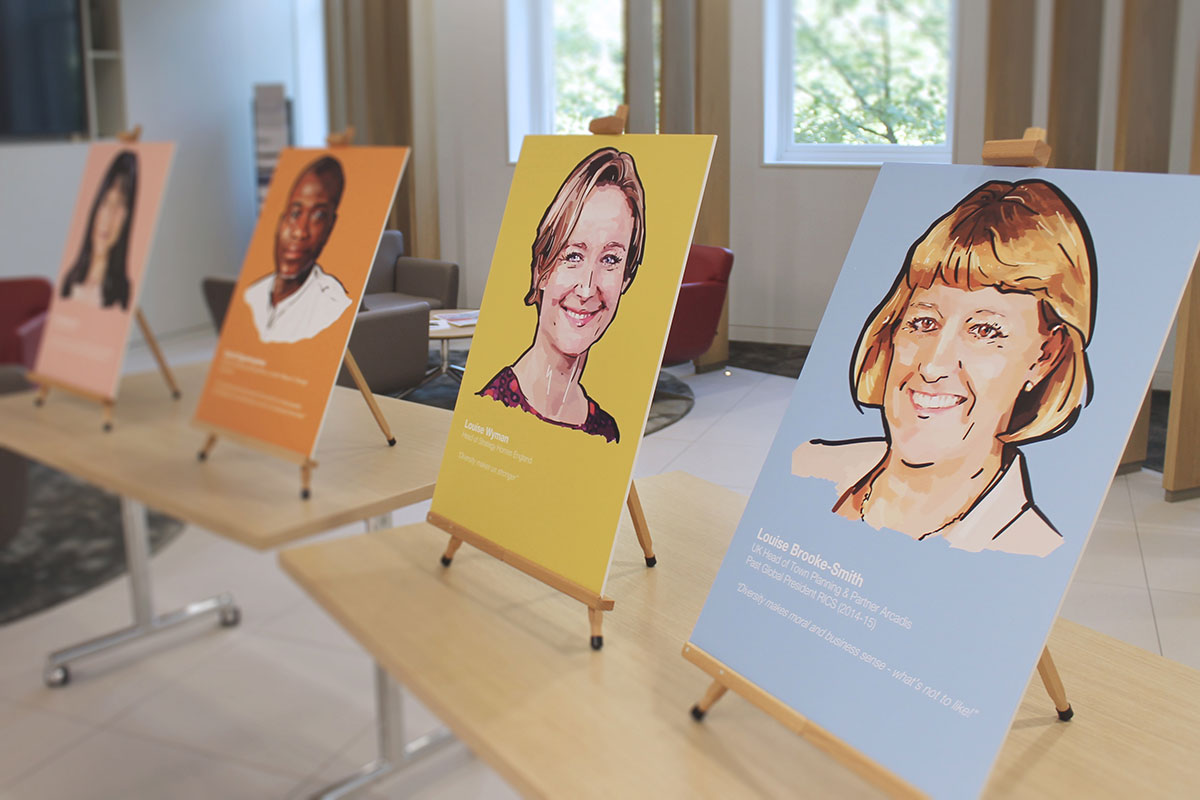
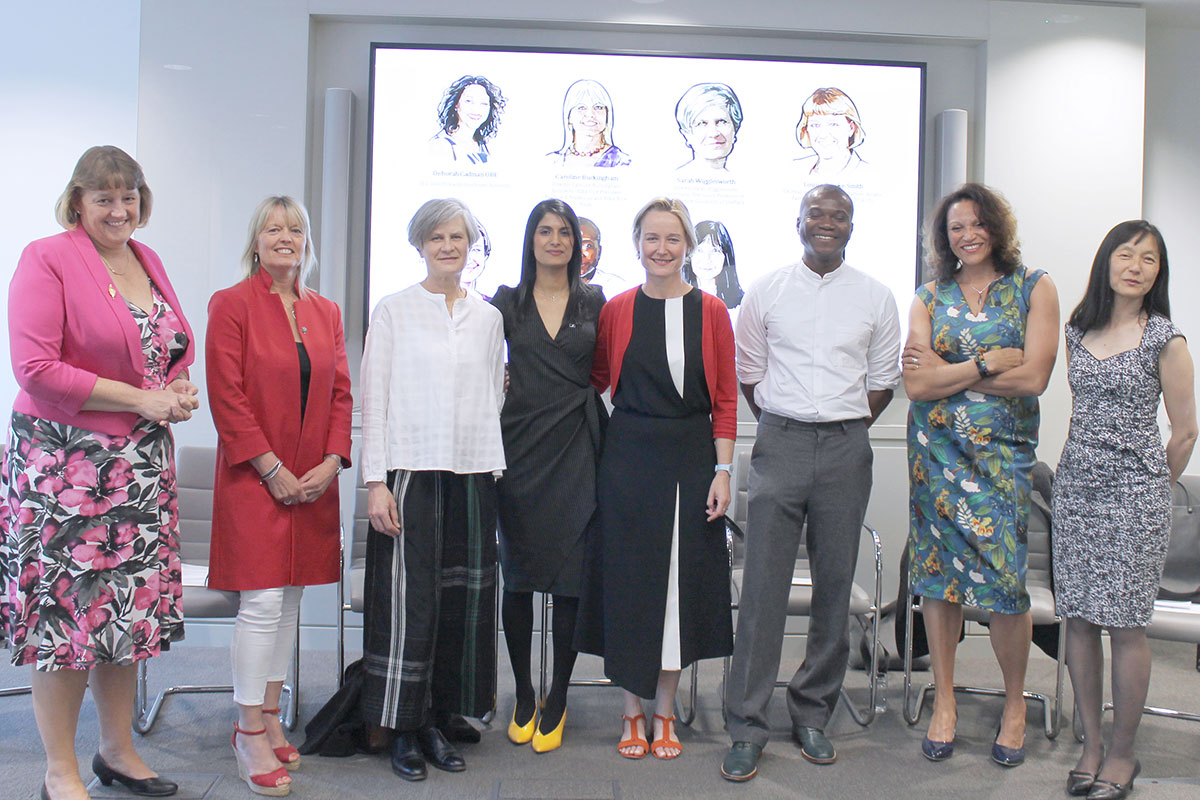
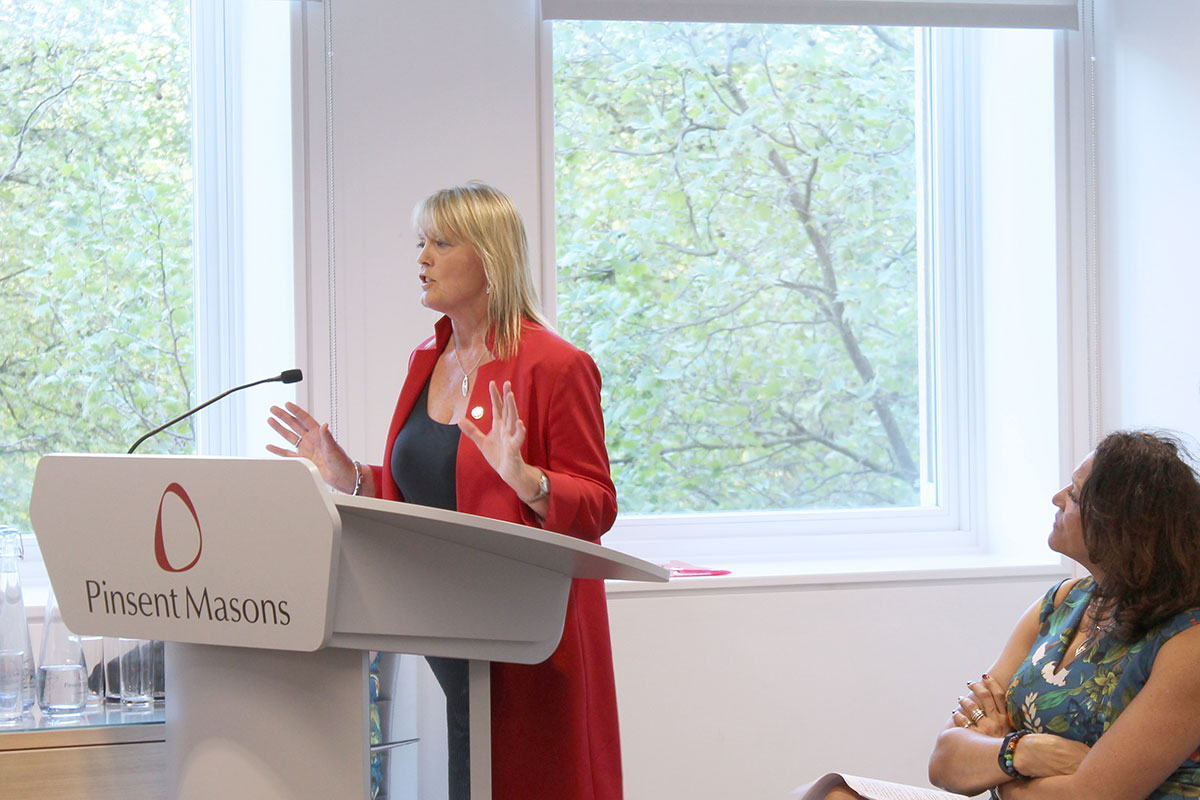
Louise Wyman, head of strategy at Homes England, emphasised the need to support staff in expressing their diversity, help establish intracompany networks for women, LGBT etc. Homes England insist on attending diverse panels and meetings that are not monogendered. Having different people around the table helps to learn from each other and provide better representation. Mental health wellbeing is an important part of a company’s responsibilities.
David Ogunmuyiwa, partner at ArchitectureDoingPlace and London Mayor’s Design Advocate, underlined the need for representation from communities when designing spaces for them. Race, gender and other protected characteristics need to be represented around the designers' table otherwise there is lack of understanding of the issues at hand. Values should be embedded in a company’s day to day ethos and not only called upon when questioned.
Yuli Cadney-Toh, architect director at BDP, summarised by discussing the complicity of many staff members in propagating status quo and questioning the role of an individual in companies. She stressed that we must all do better to achieve a more diverse and encouraging work place. And the need to be taking a long view when issues of diversity are discussed and to be planning for change that is to come more slowly than expected, but which will come.
Kieren concluded by emphasising the importance of finding good mentors and role models to promote diversity, but also the need to become good role models ourselves.
